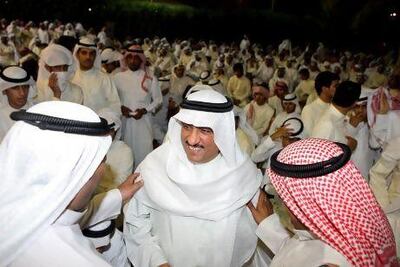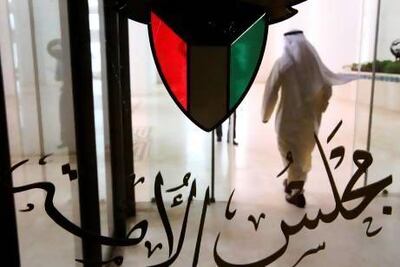Kuwait's Emir Sheikh Nawaf Al Sabah instructed ministers to draft a pardon for prisoners, the state news agency said on Wednesday after a months-long stand-off between the government and opposition MPs.
The country's parliament speaker, prime minister and head of the Judicial Council will propose “regulations and conditions of amnesty” for some prisoners, Kuna reported without specifying who would be included.
However, it comes after 40 MPs made a public appeal on Tuesday for the release of political prisoners and dissidents – a major condition of opposition MPs to end a months-long standoff with the government to finally pass needed economic reforms.

“We request your majesty to kindly approve the beginning of a comprehensive national reconciliation by pardoning Kuwaitis convicted for holding certain political opinions or positions,” MP Obaid Al Wasmi said in the press conference.
He cited the rapidly changing political environment in Kuwait and the region as a reason to let issues of the past remain there.
“This is so that these files do not linger and remain an obstacle for creating a stable environment in Kuwait's small society which is surrounded by major challenges,” he said.
The statement said the emir had decided to use his constitutional right to issue amnesties following talks between the government and parliament to enhance "political stability" and co-operation between the executive and legislative branches.

Ahead of the announcement on Wednesday, some parliamentarians began tweeting about what they called a “historic moment” for Kuwait, thanking the emir in advance.
“We are waiting for the intersection of the higher powers and the will of the people for the sake of national reconciliation,” wrote MP Mohallal Khalid Al Modhaf.
“Thank you, your majesty, for your kind pardon. Thank you to the loyal people of Kuwait.”
Once the appointed officials complete their task, a royal decree will be issued, the emir's office said, according to Kuna.
Kuwait does not allow formal political parties but its elected parliament has significant powers to pass or block legislation, quiz ministers over their conduct and submit no-confidence motions in administrations.
MPs have called for a pardon that includes a number of dissidents and former politicians, including those who took part in the 2011 storming of parliament over accusations of government corruption. Many of the accused have fled the country.

